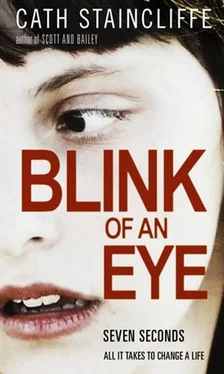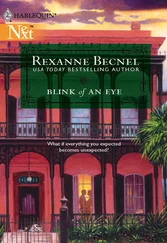Though you’d never think that to read about us in the papers or see us vilified on TV. The public, the opinion-makers, the politicians want it every which way. We must be immediate, decisive, fearless in acting to remove children or disabled people or the elderly from harm, yet we are expected to do so with inadequate staff and resources, and when we fail to protect a child, no matter how manipulative the parents or carers have been, we are savaged. Regarded as do-gooders, as bleeding hearts, we are sneered at as agents of the nanny state, the faceless bureaucrats who snoop around and tell tales and break up families. We are the Cinderella profession. The overriding stereotype of a social worker is the person tearing a child from a weeping mother’s arms. A bogeyman in office clothing.
The next time I saw Suzanne was to babysit while she and Jonty had a night out for their anniversary. It had been in our diaries a while and I rang the night before to check their plans hadn’t changed. Neither of us mentioned our argument over the phone.
Jonty was still getting ready when she let me in. She looked lovely, in a red silk dress and heels, her hair up in a French twist.
She showed me where Ollie’s bottle was in the fridge and how to use the bottle-warmer, which looked like some piece of space travel kit. She was talking a little too quickly and I knew she was on edge. She told me at some length about the restaurant they were going to, and then said, ‘How’s Naomi?’ I knew this was what she really wanted to talk about.
‘Okay, I think. Better than she was.’
‘Good. I am sorry, Mum,’ she said. ‘About, well… everything. Letting you down. I just overreacted, I suppose. Didn’t think it through.’
I nodded, wondered if she’d say more, but that was it. She went to fetch her shawl and chivvy Jonty along. I brooded over it all evening. Would she apologize to Phil, too? Had she any intention of saying sorry to Naomi for abandoning her? Naomi wanted to steer clear of her sister as far as I could see. Maybe that was for the best. She was an adult, after all.
By the time Suzanne and Jonty came home, raving about the menu and the wine list, I had decided to let things slide. The ripples from the accident had affected all of our relationships, not just our individual dealings with Naomi herself. They had weakened my relationship with Suzanne. She would still be a big part of my life, but I could see who she was with a clearer, keener eye, and a more critical one. I thought that Ollie would be the filter for our love. That we’d stay close through sharing affection for him.
Naomi
When I come home from the mental health unit, Mum makes us sit down, the three of us, and talk about it. Dad isn’t sure: ‘Carmel, do you really think-’ but she interrupts him. ‘We need to face this, be completely open about what’s happened. Not tiptoe about, or shove it under the rug. That doesn’t help anyone. Now…’ She looks at me, all in practical mode, but her hands are shaking. ‘We love you very, very much…’ There’s a lump in my throat. ‘… And I understand that things must have felt…’ she struggles to find the word, ‘… unbearable, but we will do everything we can to help you get better.’
Dad just nods.
‘It’s important to keep some structure in your day,’ she says. ‘So, no lying in bed till lunchtime. And we’d like you to cook once a week and help with the supermarket shop. And do one of the chores.’
I used to do the hoovering and Suzanne used to do the dishwasher. Then when Alex and I moved back we didn’t really do anything. Well, we did our own washing and cooking.
‘The dishwasher,’ I say.
They don’t want to leave me alone in the house at first. Sometimes I go with Dad to the shop, and he finds little jobs for me to do, like sorting out the guitar strings or rewriting the price lists or cleaning. Sometimes I forget what I’m supposed to be doing. It’s a side effect of the tablets. Like being smothered in a duvet, everything’s muffled and numbed. My mind slips away all the time, like one of those random carrier bags blowing down the road, snagging on things but not for long. Aimless, empty.
I’m glad that I don’t feel so much any more. It’s the only way I can manage. I have sessions at the outpatient mental health clinic. The woman there, I like her, she never pushes me and if I start to get stressed she lets me talk about something else.
Each session she has to ask me the same things. ‘How have you been this week?’
‘Okay,’ I say today.
‘Any voices or visions?’
‘No.’
‘Suicidal thoughts?’
‘No.’ They’re further away, they don’t dominate like before, but they’re still there. Like a stream burbling in the background. Sometimes they get bigger, bloom large as if a quick zoom has magnified them. Like if there’s a knife left out on the kitchen counter or when I’m putting a scarf on, when I get a new bottle of tablets. Let me count the ways…
‘Do you feel that you’re making progress?’
‘Yes. I haven’t watched the news or anything, and I’ve been out every day, just walking.’
‘How’s that?’
‘All right, yes.’ These are things we’ve identified to help me get stronger, to avoid any extra pressure.
We have a pact, the psychiatrist and me and Mum and Dad. That if I’m going to hurt myself, I’ll ring one of the numbers on the card or tell someone here.
Mum’s cut back on her shifts so she’s around more. She helps me with some of the Jobcentre stuff when I need it, otherwise they’ll cut my benefit.
The plea and case management hearing at the Crown Court is set for a week on Monday. When I think of that, my heart burns, even with all the tranquillizers. Next week I meet the barrister. Don says he’s very good. I’m not going to give evidence at the trial, but I’ll be there in the dock.
Mum keeps on about it, pretending it’ll be okay. The girl’s family will be there, of course; I expect they’ll all come, including Robin, the one who came to our house and yelled at me. You’re dead. Well, I tried.
Carmel
I found it hard to go past her bedroom door if she was in and it was shut. Especially at bedtime. I decided to be frank with her about it. ‘Naomi, I need to be able to check on you, if I feel worried.’
She looked at me, a whisper of alarm in her expression.
‘If I knock on your door and you answer, that’ll be fine.’
‘Okay.’
‘And if you’re asleep and don’t hear me, I’ll look in on you – if I need to. Just for now.’
She nodded once and her eyes filled with tears and she said, ‘I am sorry, Mum.’
Hugging her, warm and precious, I said, ‘I love you. I love you no matter what you’ve done, no matter what happens. You know that.’
The vigilance, the state of being on alert to any dip in her mood, continued. It was very hard to relax, though my own medication helped me to keep functioning.
The days went on. Our lives went on. One morning I found Naomi in the kitchen, checking the cupboards. ‘I’m going to the shops,’ she said. ‘Are you here for tea?’
‘Yes.’
‘Have we got rice?’ She peered in the bottom cupboard. ‘Oh, yes. I think I’ll do chilli.’
‘Great.’
‘Becky rang. I’m going to go with her to look at this hotel.’
‘For the wedding?’ I said.
‘Yes. We’re doing a few and shortlisting them for Steve.’
I glanced at her. ‘Wedding planner now, are you? Steve lost interest?’
‘Think he’s lost the will to live,’ she joked.
There was this ghastly moment as we both heard what she’d said.
‘Oh God,’ she groaned, and shook her head.
And we both smiled and the danger evaporated. It felt like something had shifted. I think the counselling and the medication made a big difference. She was getting stronger, was more active and engaged. But it still felt poignant, precarious, like the last day of a holiday that has to end, or the last visit with an aged relative. Because there was still the trial to come, and a very uncertain future.
Читать дальше












